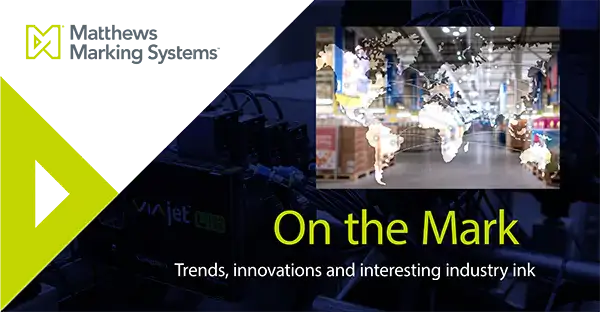White House unveils sustainable packaging mandate, next-level traceability and more
Catching up on interesting news and innovations in production, packaging and more

Biden order aims to replace 90% of fossil-based plastics with bio-based polymers.
The White House issued a new report that details President Biden’s executive order calling for the displacement of 90% of today’s petroleum-based plastics with recyclable-by-design, bio-based polymers over the next 20 years. One major area of the report focuses on alternative processes to produce chemicals and materials, including goals to develop low-carbon-intensity chemicals and materials and to spur a circular economy for materials. The report mentions that plastics are responsible for GHG emissions equivalent to the global aviation sector, and plastic waste in landfills is recognized as a planetary-scale pollution crisis. The plastics industry praised the efforts, while environmentalists warned it does not address the root cause of plastic pollution: single-use plastics. Source: packworld.com.
How A.I. and DNA are unlocking the mysteries of global supply chains.
Consumers are demanding more than ever to know that products are sustainably and ethically sourced. While this may sound straight-forward, for large companies this can mean searching for thousands of suppliers and factories around the world. As a result, they’re turning to technologies to trace materials from the original source to the store. Examples include the use of artificial intelligence (AI) to search supplier networks or find fraudulent trading; DNA tracking, which can be sprayed like a mist onto substances like organic cotton to prove their origins; and even blockchain technology, creating a digital token for every product that encodes information about its transportation and processing onto its digital twin. However, according to a 2022 McKinsey study, 45 percent of companies said they had no visibility at all into their supply chain beyond immediate suppliers. Clearly, there’s more work to be done. Source: nytimes.com.
Breaking down food traceability myths.
The importance of traceability cannot be understated, yet a number of common myths persist. In the food industry, traceability prevents foodborne illness outbreaks and ensures that products meet regulatory requirements. But some believe that food is the only industry requiring traceability, which simply isn’t true. Today’s consumers demand ethical sourcing and transparency from all kinds of products. Another myth is the belief that traceability has long been an optional business practice when, in reality, food traceability mandates from the U.S. Food and Drug Administration (FDA) go back to the early 2000’s. Traceability myths abound when it comes to food product recalls and its costs vs. investing in traceability software. In short, checking the facts about traceability saves companies time and money in the long run. Source: supermarketperimeter.com.
How sustainable packaging solutions protect profits, products and the planet.
Companies today are being held accountable for sustainable solutions across the board to make meaningful progress toward a circular economy. The bar is being set high for sustainable packaging solutions across every industry. Today’s packaging must stand out on the shelf as well as protect the planet. Top packaging trends, according to a recent Future Market Insights report, include taking a minimalist approach to sourcing, investing in bio-degradable materials and using flexible packaging. One success story is of the Sonos Roam portable speaker. The product has received rave customer reviews – much of which is about the packaging. Its intimate unboxing experience and curbside recyclability delights customers and delivers on the company’s sustainability goals. Source: packagingtechtoday.com.
